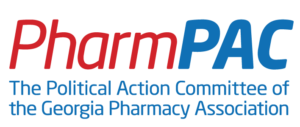New Covid Pills from Merck and Pfizer
By STAT
November 15, 2021
The past two months have brought extremely good news in the fight against Covid-19. Two different oral treatments have proved effective at both preventing people newly diagnosed with Covid-19 from entering the hospital and from dying.
“We’re accelerating our path out of this pandemic,” President Biden said after data on the second Covid pill became available. The wide availability of oral drugs could make Covid-19 less lethal, making it less risky for people to return to in-person work and to their normal lives.
The first results, from Merck and Ridgeback Therapeutics, were released in October and will be considered by an advisory panel to the Food and Drug Administration in December. That could lead to an emergency use authorization in the U.S. by the end of the year. That drug, molnupiravir, reduced hospitalizations by 50% and prevented deaths entirely a large randomized clinical trial when it was given within five days of when symptoms began. The pill is given as a five-day course during which patients take a total of 40 pills.
Though the topline results are similar, the medicines could have different risks and benefits. The companies have only issued data in press releases, not scientific articles, and doctors need to know a lot more about both. Here is an overview of what we still don’t know about the Covid pills and when we might learn it.
Which one works better?
At the headline level, Pfizer’s pill reduced the risk of hospitalization and death by 89%, while Merck showed a reduction of 50%. But neither firm has disclosed detailed data from its pivotal studies, and the trials were not identically designed.
The studies enrolled similar populations — unvaccinated people with mild to moderate Covid-19 and at least one risk factor for severe disease — but they had slightly different measures of efficacy. Pfizer’s 89% figure comes from patients who started getting its pill, Paxlovid, within three days of their first Covid-19 symptoms. Merck’s 50% applies to patients who began treatment within five days. In the Paxlovid study, patients who started treatment within five days saw an 85% improvement in hospitalization or death versus placebo. Merck has not shared data on patients who got its drug within three days of symptom onset.













